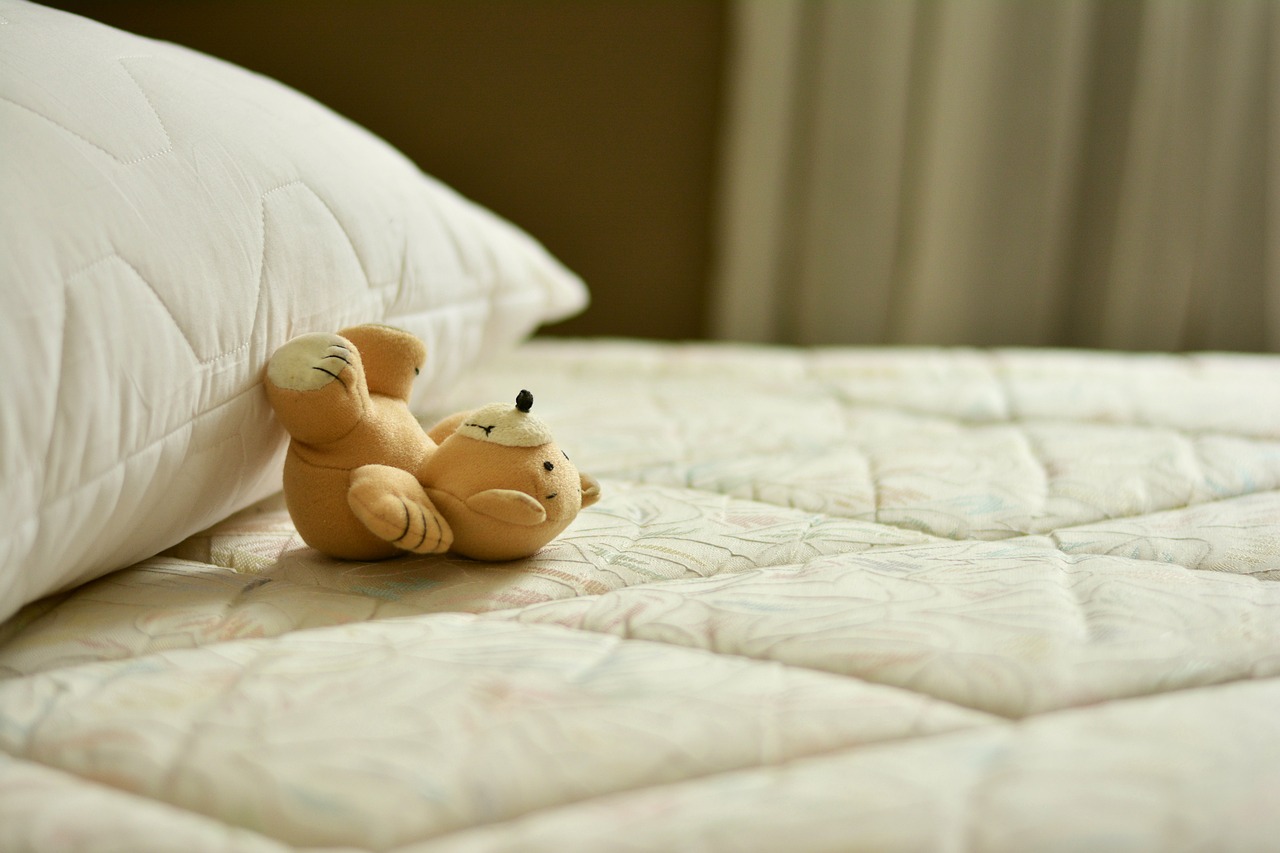Sleep plays a critical role in maintaining mental and emotional well-being. When you’re sleep-deprived, your brain’s ability to regulate emotions and handle stress diminishes, making it easier for worry and anxiety to spiral out of control. For individuals dealing with chronic anxiety or those who tend to worry excessively, a lack of quality sleep can exacerbate their condition, making it even harder to manage their emotional responses to stress.
This article explores the powerful connection between sleep and anxiety, how a lack of rest affects mental health, and provides practical strategies for improving sleep to reduce worry. you’ll understand how better sleep can lead to better emotional stability and how to improve your sleep hygiene to manage worry and anxiety more effectively.
Understanding Worry and Anxiety
Before delving into the importance of sleep, it’s essential to distinguish between worry and anxiety:
- Worry is a repetitive thought process where an individual fixates on potential future problems or negative outcomes. It often involves excessive rumination on “what could go wrong” and can quickly become an unhealthy habit.
- Anxiety, on the other hand, is a broader emotional state that involves physical symptoms such as increased heart rate, muscle tension, and restlessness. Anxiety can be triggered by worry but also includes a range of other stress-related emotions.
Both worry and anxiety disrupt daily life and emotional well-being. Fortunately, sleep can act as a natural remedy to reduce the severity of these emotional states.
The Link Between Sleep and Anxiety
There is a well-established, bidirectional relationship between sleep and anxiety. Anxiety can cause poor sleep, and poor sleep can heighten anxiety, leading to a vicious cycle that can be difficult to break. Here’s how each factor impacts the other:
1. Sleep Deprivation Increases Emotional Instability
When the body doesn’t get enough rest, it struggles to regulate emotions properly. This lack of emotional control makes individuals more prone to anxiety and worry. Studies have shown that sleep-deprived individuals are more likely to experience negative emotions, have trouble concentrating, and are less resilient in dealing with stressful situations.
- Cognitive Impact: Sleep deprivation affects cognitive functioning, making it harder to focus on solutions to problems. Instead of addressing issues logically, sleep-deprived individuals are more likely to catastrophize and worry about worst-case scenarios.
- Emotional Regulation: Without proper sleep, the brain’s amygdala, the region responsible for processing emotions, becomes overactive. This overactivity leads to heightened emotional responses, making individuals more prone to panic, anxiety, and excessive worry.
2. Anxiety Disrupts Sleep Quality
Conversely, when you’re anxious, your mind tends to race, making it harder to fall asleep or stay asleep. Anxiety leads to the release of cortisol, the body’s primary stress hormone, which keeps the brain in a state of hyper-alertness. This state can result in tossing and turning at night, frequent wake-ups, and difficulty achieving deep, restorative sleep.
- Insomnia: Chronic anxiety often leads to insomnia, a condition where individuals have difficulty falling asleep or staying asleep. Insomnia further aggravates anxiety, resulting in a negative feedback loop.
- Nightmares and Night Terrors: High levels of anxiety can also lead to disturbing dreams or nightmares, which disrupt sleep and contribute to morning fatigue and heightened emotional stress.
How Sleep Helps Alleviate Anxiety and Worry
Now that we understand the negative impacts of poor sleep on anxiety, it’s crucial to explore the opposite—how good sleep helps reduce worry and anxiety.
1. Sleep Promotes Emotional Resilience
When you’re well-rested, your brain has the resources it needs to process and regulate emotions effectively. During sleep, the brain consolidates emotional experiences from the day, helping you manage stress more efficiently.
- Emotional Processing: REM (Rapid Eye Movement) sleep plays a key role in emotional processing. During this sleep stage, the brain sorts through emotions and experiences, allowing you to wake up with a clearer perspective. Well-rested individuals are better equipped to handle stressors calmly and rationally, reducing the likelihood of excessive worry.
- Increased Coping Skills: Good sleep strengthens the brain’s prefrontal cortex, which is responsible for higher-order cognitive functions such as decision-making and problem-solving. With a strong prefrontal cortex, you’re better able to find solutions to problems, reducing the urge to worry excessively.
2. Improved Sleep Reduces Cortisol Levels
As mentioned earlier, anxiety triggers the release of cortisol, a hormone that keeps the body in a state of heightened alertness. However, during deep sleep stages, cortisol levels naturally drop, allowing the body and mind to relax.
- Lower Stress Hormones: When cortisol levels decrease during sleep, the body enters a state of relaxation. This state makes it easier to handle stress during the day and keeps anxiety levels in check.
- Restorative Sleep: Deep sleep stages, including slow-wave sleep (SWS), are essential for physical and mental restoration. During SWS, the body repairs tissues, the immune system strengthens, and the mind processes and stores memories. This restoration helps reduce the physical effects of anxiety, such as muscle tension and fatigue.
3. Enhancing Sleep Quality Helps Break the Cycle of Anxiety
By improving sleep quality, individuals can break the anxiety-sleep deprivation cycle. High-quality sleep not only reduces immediate anxiety symptoms but also improves long-term emotional stability.
- Better Mood: Consistently good sleep helps stabilize mood, making individuals less prone to the mood swings and irritability that often accompany anxiety.
- Reduced Sensitivity to Stress: A well-rested mind is less sensitive to stressors, meaning that even in challenging situations, individuals can respond calmly without triggering a cascade of anxious thoughts.
The Science Behind Sleep and Mental Health
Research consistently shows the connection between good sleep and mental health improvement. Below are some scientific studies that highlight the positive impacts of sleep on anxiety and emotional well-being:
- A study published in Behavioral Sleep Medicine found that individuals with anxiety disorders experienced significant symptom relief after improving their sleep hygiene. The study also concluded that sleep therapy, such as cognitive-behavioral therapy for insomnia (CBT-I), was an effective tool in reducing anxiety symptoms.
- The Journal of Sleep Research reported that improving sleep quality in individuals with generalized anxiety disorder (GAD) led to a reduction in negative thought patterns and overall worry.
Tips for Improving Sleep to Manage Worry and Anxiety
Improving sleep is one of the most effective ways to reduce worry and anxiety. Below are practical, evidence-based strategies to help you achieve better sleep and reduce stress.
1. Create a Relaxing Bedtime Routine
A consistent bedtime routine signals to your brain that it’s time to wind down and prepare for sleep. A soothing routine can include activities like reading a book, practicing gentle yoga, or listening to calming music. The goal is to relax both your body and mind.
- Limit Screen Time: Blue light emitted by phones, tablets, and computers interferes with the production of melatonin, a hormone that regulates sleep. Avoid screens at least one hour before bed.
- Journaling: If worry keeps you awake at night, consider incorporating journaling into your bedtime routine. Writing down your thoughts can help release pent-up worries and clear your mind before bed.
2. Practice Relaxation Techniques
Incorporating relaxation techniques into your day and evening routine can help reduce anxiety levels and promote better sleep.
- Deep Breathing: Deep breathing exercises, such as diaphragmatic breathing, help activate the body’s relaxation response by lowering heart rate and blood pressure.
- Progressive Muscle Relaxation: This technique involves tensing and then relaxing each muscle group in the body. It helps relieve physical tension, which is often associated with anxiety and worry.
3. Set a Consistent Sleep Schedule
Going to bed and waking up at the same time every day helps regulate your body’s internal clock, known as the circadian rhythm. This regularity makes it easier to fall asleep at night and wake up feeling refreshed.
- Avoid Sleeping In: Sleeping late on weekends or holidays can disrupt your body’s natural sleep-wake cycle. Stick to a consistent wake-up time, even on weekends, to keep your circadian rhythm in check.
4. Make Your Sleep Environment Comfortable
Your bedroom environment plays a crucial role in the quality of your sleep. Make sure your sleeping space is comfortable, quiet, and conducive to rest.
- Dark and Quiet Room: Use blackout curtains to block out external light and consider white noise machines or earplugs to mask disruptive noises.
- Cool Temperature: Keep your bedroom cool (around 60-67°F or 15-19°C) to promote better sleep. Your body temperature naturally drops as you sleep, so a cool environment helps facilitate this process.
5. Limit Stimulants and Heavy Meals Before Bed
What you consume in the hours leading up to bedtime can significantly impact your sleep quality. Avoid stimulants like caffeine and nicotine late in the day, as they can interfere with your ability to fall asleep.
- Avoid Large Meals: Eating heavy meals right before bed can cause indigestion, making it harder to sleep comfortably. Aim to have dinner at least 2-3 hours before bedtime.
6. Engage in Regular Physical Activity
Exercise is not only beneficial for physical health but also plays a key role in improving sleep quality and reducing anxiety. Regular physical activity helps regulate the body’s circadian rhythm, making it easier to fall asleep at night.
- Morning or Afternoon Exercise: While exercise is beneficial, try to avoid intense physical activity close to bedtime, as it may energize you and make it harder to fall asleep.
Conclusion
The connection between sleep and anxiety is undeniable. Poor sleep exacerbates worry, while quality sleep can help reduce anxiety and improve emotional stability. By understanding how sleep impacts your mental well-being and incorporating strategies to improve sleep hygiene, you can break the cycle of anxiety and sleep deprivation. Remember, getting enough rest is not a luxury but a necessity for a healthy mind and body. Prioritize your sleep, and you’ll find it easier to manage worry, reduce anxiety, and live a more balanced, peaceful life.

The Therapeutic Power of Coloring: How Art Relieves Stress and Anxiety
Coloring has evolved from a childhood pastime into a therapeutic tool used by adults to combat stress and anxiety. The simplicity of this activity hides its profound benefits on mental health. From promoting mindfulness to stimulating creativity, coloring has emerged as an accessible and effective method for stress relief. In this article, we’ll explore how coloring provides a break from daily stressors, its effects on brain function, and how it can be incorporated into your routine as a method of coping with anxiety.
Let your imagination run free, Immerse yourself in a world of colors and beauty. Remember, your mental well-being is priceless.
Team coloringbookvibe.com

Coloring Book Vibe is a dedicated publisher of captivating coloring books, along with instructional books on drawing and coloring techniques. We are deeply passionate about the art of coloring, ensuring our designs are always intricate, beautiful, unique, and often infused with a touch of humor. We highly value our customers and always welcome feedback and suggestions. Our collection features an incredible array of coloring books across various genres, including Fantasy, Animals, Mandalas, Doodle Patterns, Floral, Landscapes, Country Scenes, and more.



